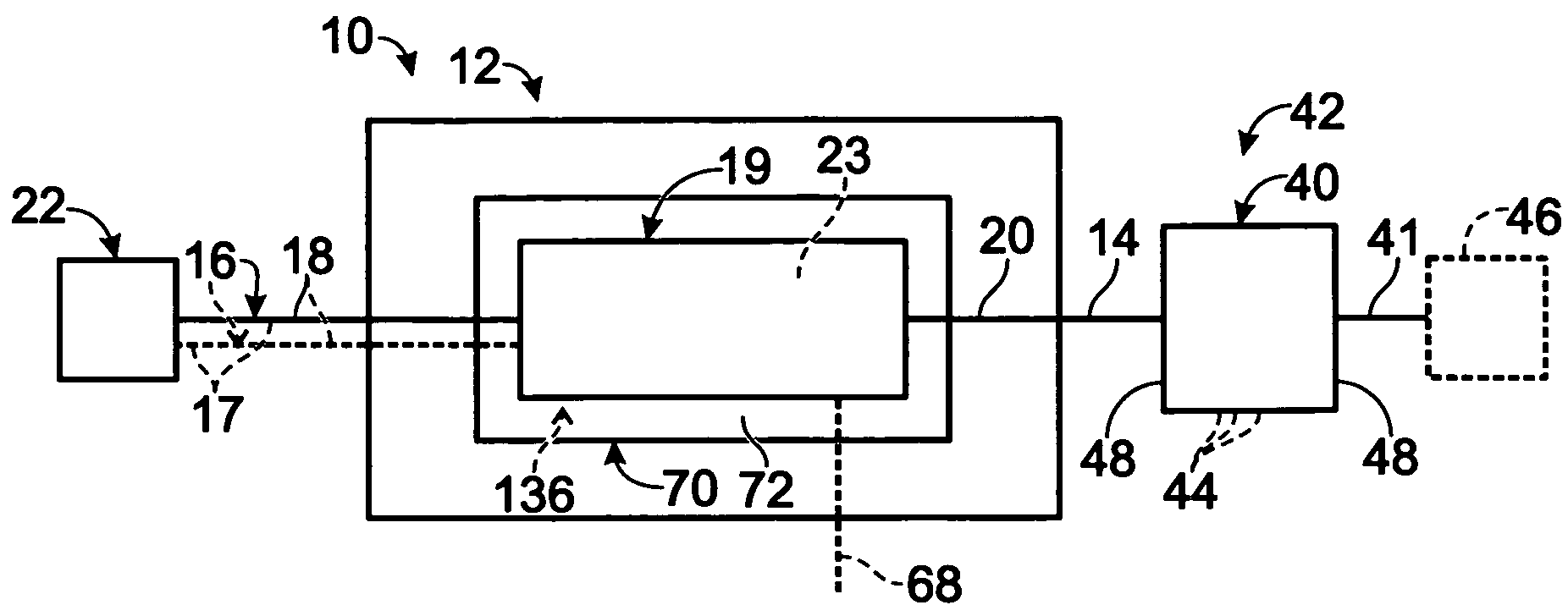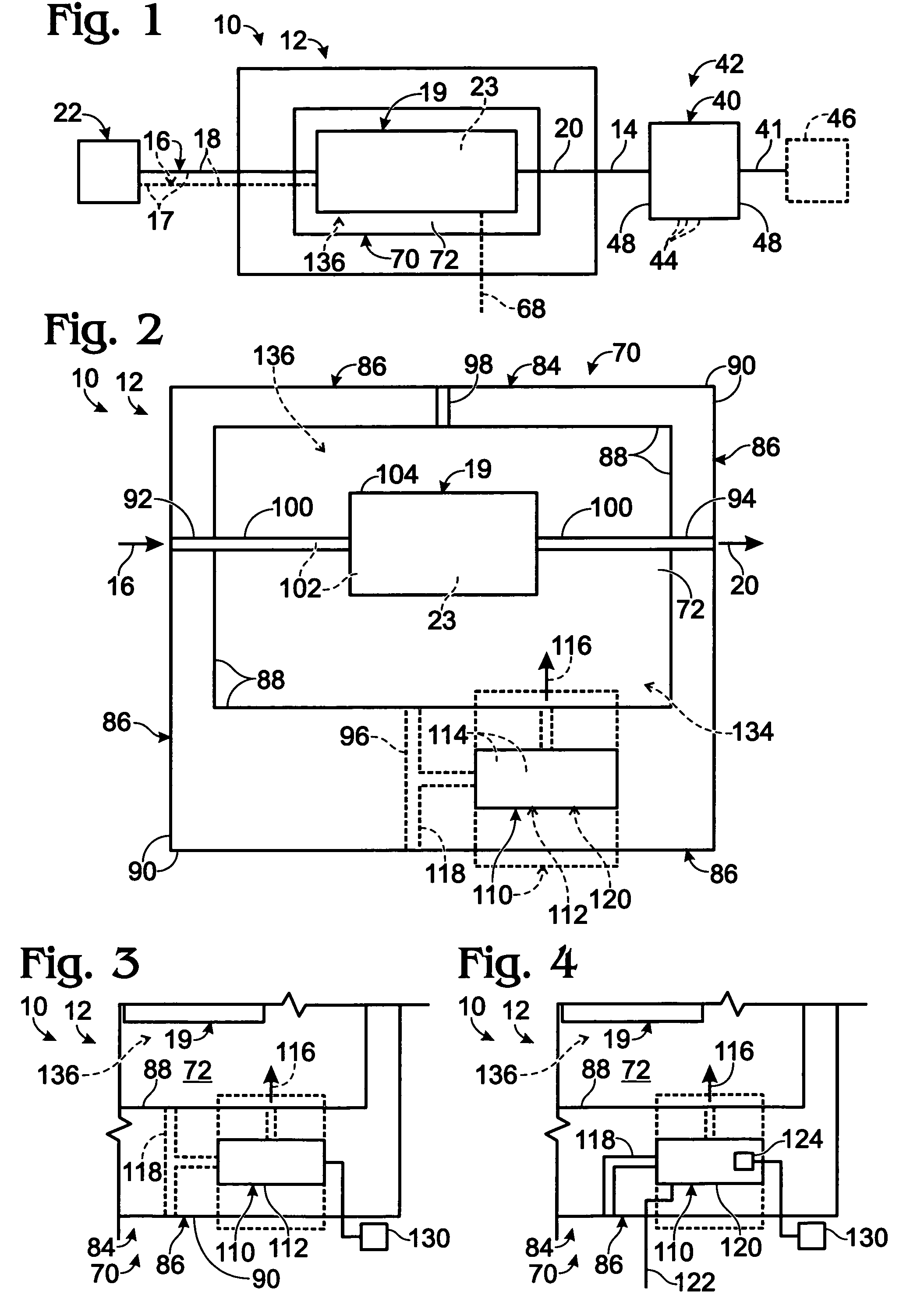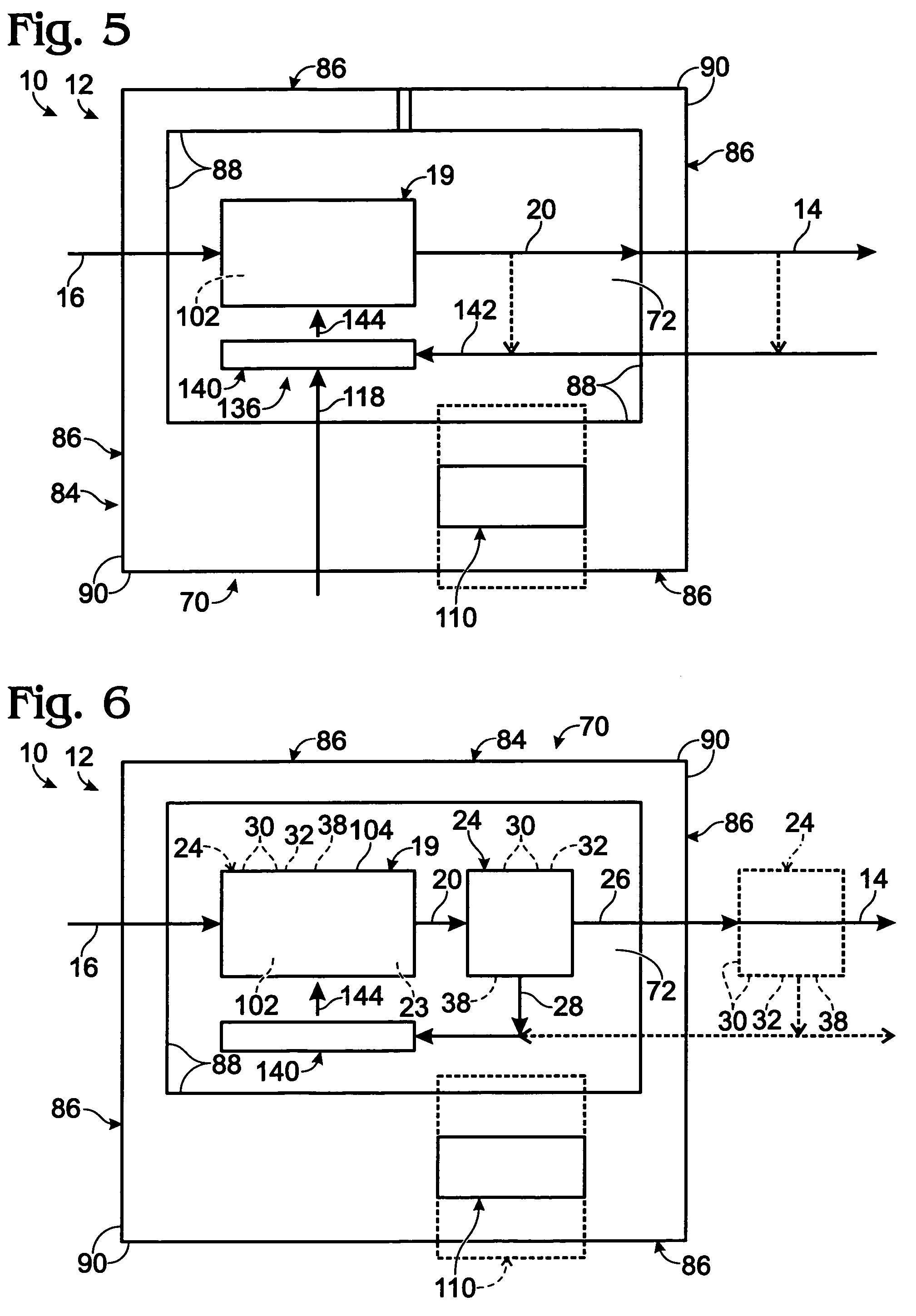Thermally primed hydrogen-producing fuel cell system
a fuel cell and fuel cell technology, applied in the direction of cell components, electrochemical generators, sustainable manufacturing/processing, etc., can solve the problems of hydrogen-producing fuel cell systems, system cannot produce power output, and cannot accept a period of inability to meet the applied load of an energy-consuming devi
- Summary
- Abstract
- Description
- Claims
- Application Information
AI Technical Summary
Benefits of technology
Problems solved by technology
Method used
Image
Examples
Embodiment Construction
[0016]A thermally primed fuel processing assembly is shown in FIG. 1 and is indicated generally at 10. Thermally primed fuel processing assembly 10 includes a thermally primed fuel processor 12 that is adapted to produce a product hydrogen stream 14 containing hydrogen gas, and preferably at least substantially pure hydrogen gas, from one or more feed streams 16. Feed stream 16 includes at least one carbon-containing feedstock 18, and may include water 17. Fuel processor 12 is any suitable device, or combination of devices, that is adapted to produce hydrogen gas from feed stream(s) 16. Accordingly, fuel processor 12 includes a hydrogen-producing region 19, in which a hydrogen gas is produced using any suitable hydrogen-producing mechanism(s) and / or process(es). The product hydrogen stream may be delivered to a fuel cell stack 40, which is adapted to produce an electric current, or power output, 41 from hydrogen gas and an oxidant, such as air. An air stream is illustrated at 43 in ...
PUM
| Property | Measurement | Unit |
|---|---|---|
| threshold temperature | aaaaa | aaaaa |
| threshold temperature | aaaaa | aaaaa |
| threshold temperature | aaaaa | aaaaa |
Abstract
Description
Claims
Application Information
 Login to View More
Login to View More - R&D
- Intellectual Property
- Life Sciences
- Materials
- Tech Scout
- Unparalleled Data Quality
- Higher Quality Content
- 60% Fewer Hallucinations
Browse by: Latest US Patents, China's latest patents, Technical Efficacy Thesaurus, Application Domain, Technology Topic, Popular Technical Reports.
© 2025 PatSnap. All rights reserved.Legal|Privacy policy|Modern Slavery Act Transparency Statement|Sitemap|About US| Contact US: help@patsnap.com



